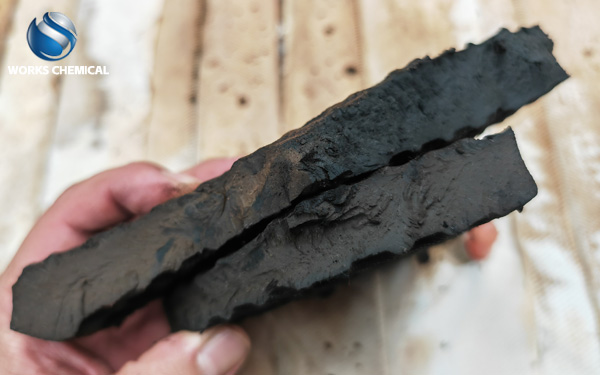
Indeed, it is very important to choose the right type of sludge conditioner to solve the problem of thin mud cake and high moisture content of plate and frame press. Sludge conditioner can change the physical and chemical properties of sludge, improve its dewatering performance, and improve the mud pressing effect. The following are the key factors to consider when choosing a sludge conditioner model:

1. Sludge properties
The composition of different types of sludge is different, and the required conditioner should also be different. For example:
Sludge containing more organic matter: organic polymer sludge conditioner can be used, such as cationic polyacrylamide (CPAM), anionic polyacrylamide (APAM), etc. This kind of conditioner has good flocculation and bridging effect, and can effectively improve the sludge dewatering effect.
Sludge containing higher inorganic salts: inorganic conditioners can be used, such as aluminum chloride, ferric chloride, ferric sulfate, polyferric sulfate, etc. This kind of conditioner has a strong flocculation ability, which can effectively improve the sludge properties and improve the dehydration effect.
2. Processing technology and target requirements
Select the appropriate type of sludge conditioner according to the sludge treatment process and target requirements. For example:
Centrifugal dehydration process: organic conditioners can be considered, because the flocculus formed by organic conditioners is thick, which is conducive to centrifugal dehydration.
Belt filter press process: organic conditioners can also be considered, because the floc structure formed by organic conditioners is stable, which is conducive to improving the filtration efficiency.
Three, the performance of the conditioner
When selecting sludge conditioner, it is also necessary to consider its performance characteristics, such as:
Flocculation capacity: ensure that the sludge conditioner can effectively reduce the moisture content of the sludge and improve the dehydration efficiency.
Corrosiveness: Choose a small corrosive conditioner to avoid equipment corrosion and personnel damage.
Environmental protection: To ensure that the sludge conditioner is environmentally friendly, low toxic, easy to degrade, and does not bring additional load to the water body and sludge.
4. Cost factors
When selecting the sludge conditioner model, it is also necessary to consider its cost factors, such as price, transportation cost, etc., to ensure that the most cost-effective conditioner is selected.
5. Practical application experience
In practical application, according to the existing operating experience and technical parameters, combined with the characteristics of different conditioners, choose the conditioner suitable for their own conditions. At the same time, you can also refer to the successful experience of other similar sludge treatment projects to choose the appropriate conditioner model.
In summary, when selecting the sludge conditioner model, it is necessary to consider sludge properties, treatment processes and target requirements, conditioner performance, cost factors and practical application experience. Through comprehensive consideration of these factors, the most suitable type of adjuster for its own sludge treatment needs can be selected, so as to improve the mud pressing effect and improve the sludge dewatering efficiency.